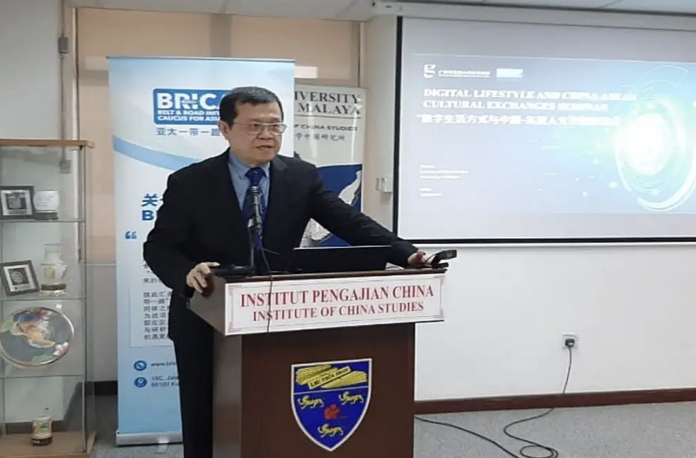KUALA LUMPUR, Sept. 20 – Digital cultural content has grown in scope and scale and is a key component of fostering people-to-people ties between China and the Southeast Asian region, participants said at a forum on Thursday.
This has not only changed the way through which people in the region view and interact with each other but has also signaled a shift with the Global South increasingly creating content rather than simply consuming it, Belt and Road Initiative Caucus for Asia-Pacific (BRICAP) President Ong Tee Keat said in his welcoming remarks at the Digital Lifestyle and China-ASEAN Cultural Exchanges Seminar.
Noting that the pandemic had accelerated the digital economy and especially the deepening of digital inter-connectedness between China and Southeast Asia, Ong urged stakeholders not to allow their horizon of vision to be confined within the bounds of trade-in-goods.
“Instead, they are duty-bound to facilitate an environment conducive to promoting digital cultural exchange between China and ASEAN. Having had an early start in the digital economy, China is well-equipped with ample relevant experience and expertise to share with its Southeast Asian neighbors,” he said, adding that China’s technological lead can help shape emerging digital lifestyles and empower its regional partners.
Sun Jiashan, an associate researcher at the Central Academy of Culture and Tourism Administration, said the rapid proliferation of Chinese cultural and entertainment products from videos, films and video games has played a crucial role in people-to-people exchanges.
For his part, Zheng Xuefang, charge d’affaires of the Chinese Embassy in Malaysia, said with the deepening of digital transformation and the advancement of the China-ASEAN comprehensive strategic partnership, the two sides will further cooperation in the digital economy, adding strong impetus to consolidating regional connectivity.
“Many Chinese people tell me that when they want to choose a good restaurant or place of interest in Malaysia, they will go to the Chinese app “Xiaohongshu” for help, which will tell them everything like an encyclopedia. TikTok and Bilibili are similar apps favored by young people for advice. Alipay, WeChat Pay and Touch ‘n Go are popular e-payment apps that have greatly facilitated cross-border tourism and trade,” he said.
















